About Counseling Center – Outpatient
The Counseling Center (TCC) provides addiction recovery and behavioral health services and is located in a quiet suburban corner of West Union, Ohio. TCC addresses treatment through a holistic approach. They consider you as a person in addition to symptoms when deciding what is right for you.
TCC wants to ensure that you can get the help you need for strong and lasting recovery. That is why they have a discounted and sliding fee schedule, which is adjusted by the size of your family and income. They also meet you where you are through the use of facilities. FCC offers partial hospitalization, bridge, outpatient, and transitional living apartment facilities.
Primary and Behavioral Care
One thing that stands out about TCC is its integrated primary medical care. Addiction and mental health struggles affect more than your mind. TCC sees the importance of addressing both physical and mental health. Their primary care professionals conduct routine check-ups to look for anything that may require attention. They also offer medical assistance by preventative care and disease management.
TCC creates an environment tailored to healing and making you comfortable. They have comforting and cozy counseling rooms where you can talk to professionals one-on-one or in group sessions.
Through therapy and supportive programs and community, TCC aims to guide you towards healthier relationships, higher quality of life, and fulfilling your potential.
Stepping Stones
While planning is different for every patient, TCC takes special interest in how pregnant women recover. TCC provides specialized programs for parent and pregnant patients and takes action to empower you through your journey.
TCC lets you focus on the help you need by having onsite child care and provides necessary items such as toiletries for your kids. Because addiction and mental health affects your children, TCC also has counseling available for kids ages three and older.
Rehab Score
Other Forms of Payment
Medicaid is a state based program that helps lower-income individuals and families pay for healthcare. Medicaid covers addiction treatment so those enrolled can use their coverage to pay for rehab. When a program accepts Medicaid the client often pays very little or nothing out of their own pocket.
Private insurance refers to any kind of healthcare coverage that isn't from the state or federal government. This includes individual and family plans offered by an employer or purchased from the Insurance Marketplace. Every plan will have different requirements and out of pocket costs so be sure to get the full details before you start treatment.
Self-pay involves paying for treatment out of your own pocket. You can use savings or credit, get a personal loan, or receive help from family and friends to fund your treatment. If you don't have insurance or your insurance plan doesn't cover a specific program, self-pay can help ensure you still get the care you need.
Financial aid can take many forms. Centers may have grants or scholarships available to clients who meet eligibility requirements. Programs that receive SAMHSA grants may have financial aid available for those who need treatment as well. Grants and scholarships can help you pai for treatment without having to repay.
Sliding scale payments are based on a client's income and family size. The goal is to make treatment affordable to everyone. By taking these factors into account, addiction recovery care providers help ensure that your treatment does not become a financial burden to you or your family, eliminating one barrier to care.
Addiction Treatments
Levels of Care
Outpatient Programs (OP) are for those seeking mental rehab or drug rehab, but who also stay at home every night. The main difference between outpatient treatment (OP) and intensive outpatient treatment (IOP) lies in the amount of hours the patient spends at the facility. Most of the time an outpatient program is designed for someone who has completed an inpatient stay and is looking to continue their growth in recovery. Outpatient is not meant to be the starting point, it is commonly referred to as aftercare.
Treatments
The goal of treatment for alcoholism is abstinence. Those with poor social support, poor motivation, or psychiatric disorders tend to relapse within a few years of treatment. For these people, success is measured by longer periods of abstinence, reduced use of alcohol, better health, and improved social functioning. Recovery and Maintenance are usually based on 12 step programs and AA meetings.
Drug rehab in Ohio provides comprehensive treatment to address the physical and psychological needs of those struggling with substance use disorders. This may involve inpatient and/or outpatient care.
Many of those suffering from addiction also suffer from mental or emotional illnesses like schizophrenia, bipolar disorder, depression, or anxiety disorders. Rehab and other substance abuse facilities treating those with a dual diagnosis or co-occurring disorder administer psychiatric treatment to address the person's mental health issue in addition to drug and alcohol rehabilitation.
Opioid rehabs specialize in supporting those recovering from opioid addiction. They treat those suffering from addiction to illegal opioids like heroin, as well as prescription drugs like oxycodone. These centers typically combine both physical as well as mental and emotional support to help stop addiction. Physical support often includes medical detox and subsequent medical support (including medication), and mental support includes in-depth therapy to address the underlying causes of addiction.
Substance rehabs focus on helping individuals recover from substance abuse, including alcohol and drug addiction (both illegal and prescription drugs). They often include the opportunity to engage in both individual as well as group therapy.
Programs
Adult rehab programs include therapies tailored to each client's specific needs, goals, and recovery progress. They are tailored to the specific challenges adult clients may face, including family and work pressures and commitments. From inpatient and residential treatment to various levels of outpatient services, there are many options available. Some facilities also help adults work through co-occurring conditions, like anxiety, that can accompany addiction.
Clinical Services
Group therapy is any therapeutic work that happens in a group (not one-on-one). There are a number of different group therapy modalities, including support groups, experiential therapy, psycho-education, and more. Group therapy involves treatment as well as processing interaction between group members.
Staff
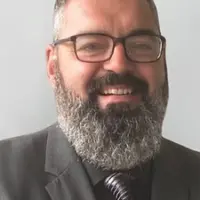
Andy Albrecht, LPCC-S, LICDC-CS, NCC
CEO
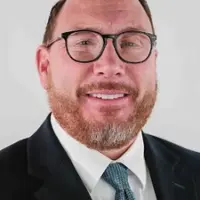
Aaron Wagner, MS, CIH
COO
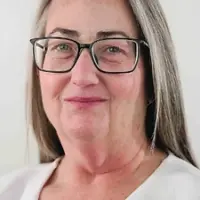
Tonya Berry
CFO
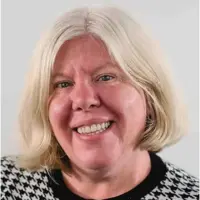
Mary Bailey
CCO

Courtney Bartley, MSN, APRN, FNP-BC, LCDCIII
TCC Health Administrator
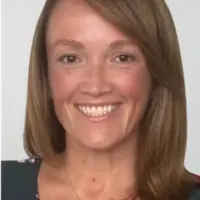
Missy Burgess
EHR Administrator

Amy Gregory, LISW-S,LICDC-CS
Senior Director, Clinical Services
Contact Information
508 E Main St
West Union, OH 45693